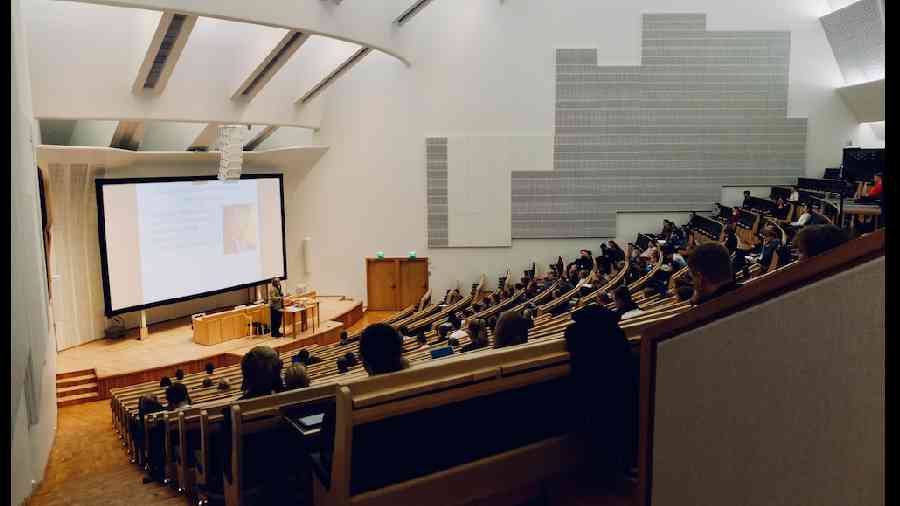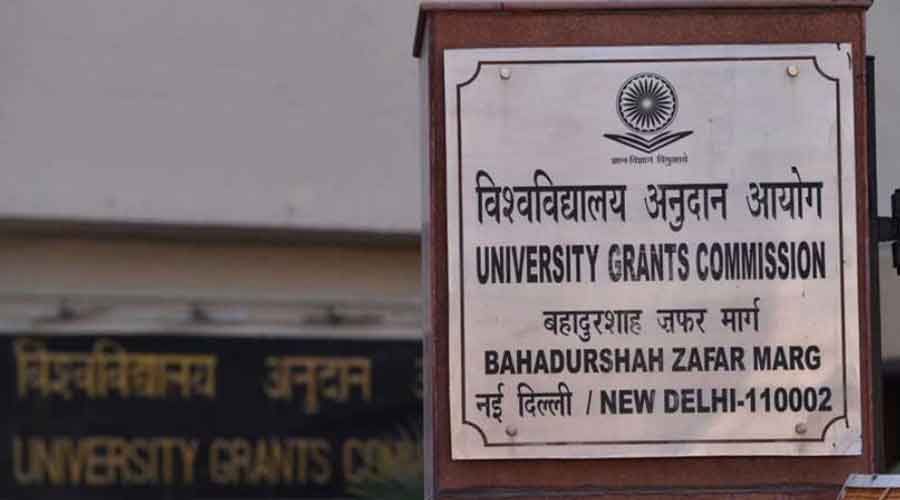Enrolment in philosophy courses has been falling steadily in the country, threatening the continuation of the discipline in universities and schools.
Many universities have closed their philosophy departments or reduced faculty strength in the subject.
The Central Board of Secondary Education has dropped philosophy as an optional subject for higher secondary students since 2017-18. Some academics attributed the trend to the low job opportunities offered by a philosophy degree. Virtually portraying the study of philosophy as a sort of higher calling, they regretted that students should be so focused on employability while choosing courses of study.
Others blamed Indian scholars’ failure to make the discipline evolve well enough to address contemporary problems, and pointed to nepotism in apex bodies tasked to maintain and improve the standards of philosophy teaching and research in the country.
Bengal, Odisha, Kerala and Delhi are the few exceptions where the discipline retains its demand in the universities. Andhra University closed down its regular philosophy programme in 2021, and the National College of Trichy did so in 2018.
At the University of Madras, which has been offering philosophy courses since 1927, the faculty strength has plummeted from nine in 1983 to just one now.
None of the 20 central universities the government set up in the last two decades offers philosophy courses. Of the 400-odd private universities established in this period, hardly two or three teach philosophy.
In Tripura, the state government has decided to shift 250 schools from the state board, which offered philosophy as an optional subject, to the CBSE and 125 of them have already made the switch.
With philosophy no longer on offer, teachers of the subject in these schools are being asked to teach other subjects in lower classes.
The Tripura Philosophical Society last November urged Union education minister Dharmendra Pradhan to intervene and ask the CBSE to restore philosophy as a higher secondary subject. Sukhadeo Thorat, former chairperson of the Indian Council of Social Science Research and the University Grants Commission, regretted the student focus on employment opportunities.
“The purpose of education is to provide knowledge to help people enhance their capabilities for organising life in multiple spheres, including their job,” he said.
He accused the central and state governments of “neglecting the social sciences”, leading to a fall in the numbers of departments and faculty and eventually, students, and urged them to make it compulsory for campuses to offer all social science and humanities courses.
S. Panneerselvam, former head of philosophy at Madras University and general secretary of the Indian Philosophical Congress, said even schoolchildren needed to be made familiar with some basic philosophical concepts.
Besides, teaching philosophy at school, as is done in many countries, creates job opportunities for philosophy graduates, he said. He regretted that Indian philosophy teachers and researchers had failed to demonstrate the discipline’s relevance to society and the solution of contemporary problems.
Nirmalangshu Mukherji, a former professor of philosophy with Delhi University, said the standard of philosophy research and teaching in India was poor. He said this had to do much with the functioning of the Indian Council of Philosophical Research, set up to review the progress of research in philosophy across universities and provide funding for research and teaching in the subject.
“People with contacts in the government were given leadership roles in the ICPR. Such people only promoted those connected with them,” Mukherji said.
“Select people were given funding for research or were nominated to attend conferences abroad. Mediocrity became the norm and it percolated to the level of universities and colleges.”
He said the study of Indian philosophy — including the Vedas, Nyaya and Buddhist philosophy — should have grown in India. However, frontline research in these areas is largely conducted in European and American universities, some of it by Indian scholars.
Some of the Indian scholars who have returned after a stint in foreign universities are the only hope, he said, as they can creatively combine their formal training in western philosophy with the original aspects of Indian philosophy.
Kesav Kumar, head of philosophy in Delhi University, dispelled the idea that a lack of interest in ancient Indian philosophy was deterring students from enrolling. He said Indian philosophy courses covered western and contemporary philosophy adequately.
“Feminism, postmodernism, environmental ethics, ethics and technology, continental philosophy and a critical reading of western philosophy are taught here,” he said.
“Apart from classical Indian philosophy, we have the critical philosophical traditions of India. The philosophy of B.R. Ambedkar is taught too.”
Asked whether science’s expansion into many areas earlier covered by philosophers had dulled the attraction of philosophy, Pranay Deb, postdoctoral fellow with the ICPR, said the study of philosophy “sharpened the scientific temperament and the mind’s inquisitive rational tendency”.
Deb said the study of science, which is value-neutral by itself, needed to be backed up by a grounding in philosophy and ethics for the real development of society.
A two-day conference organised by Delhi University that ended on February 28 discussed various aspects of philosophy research and education in India.











